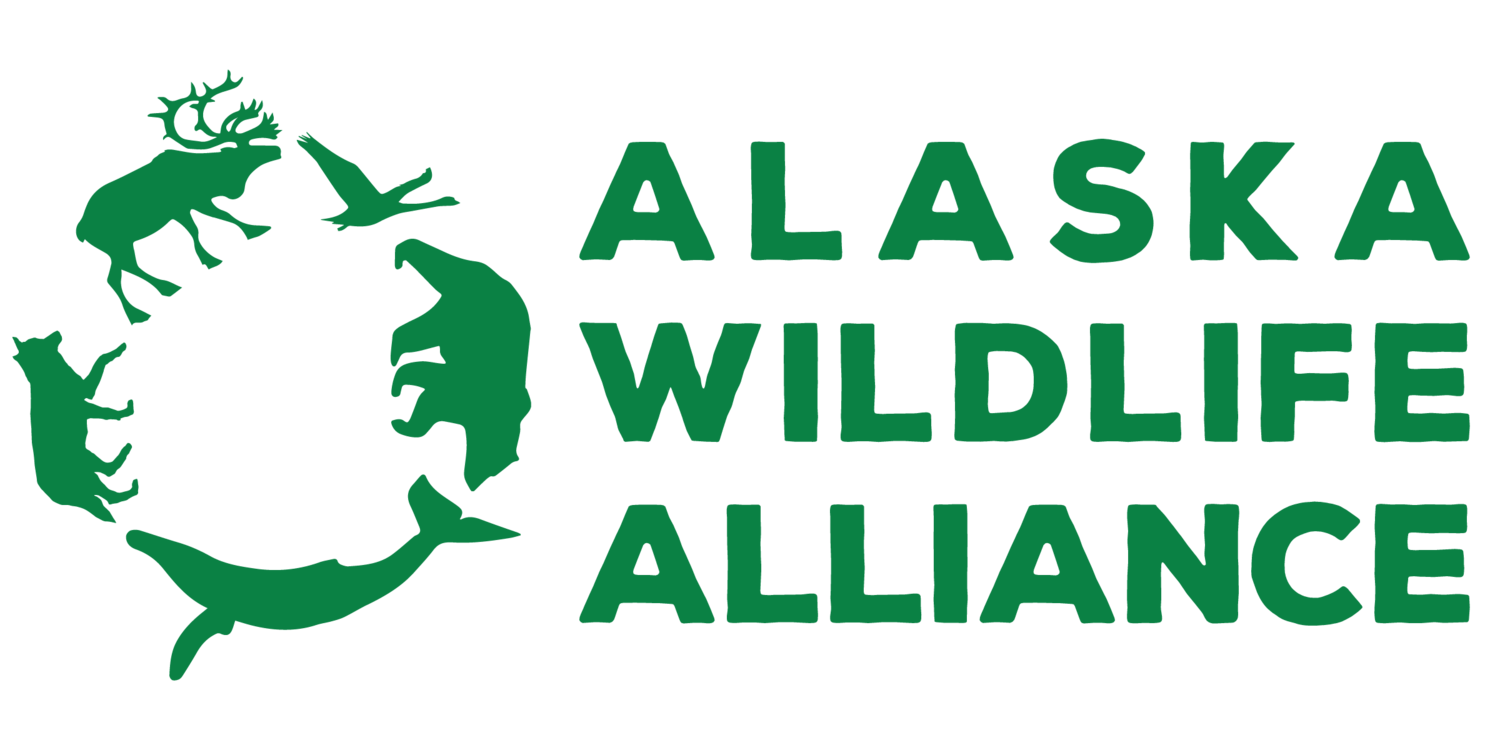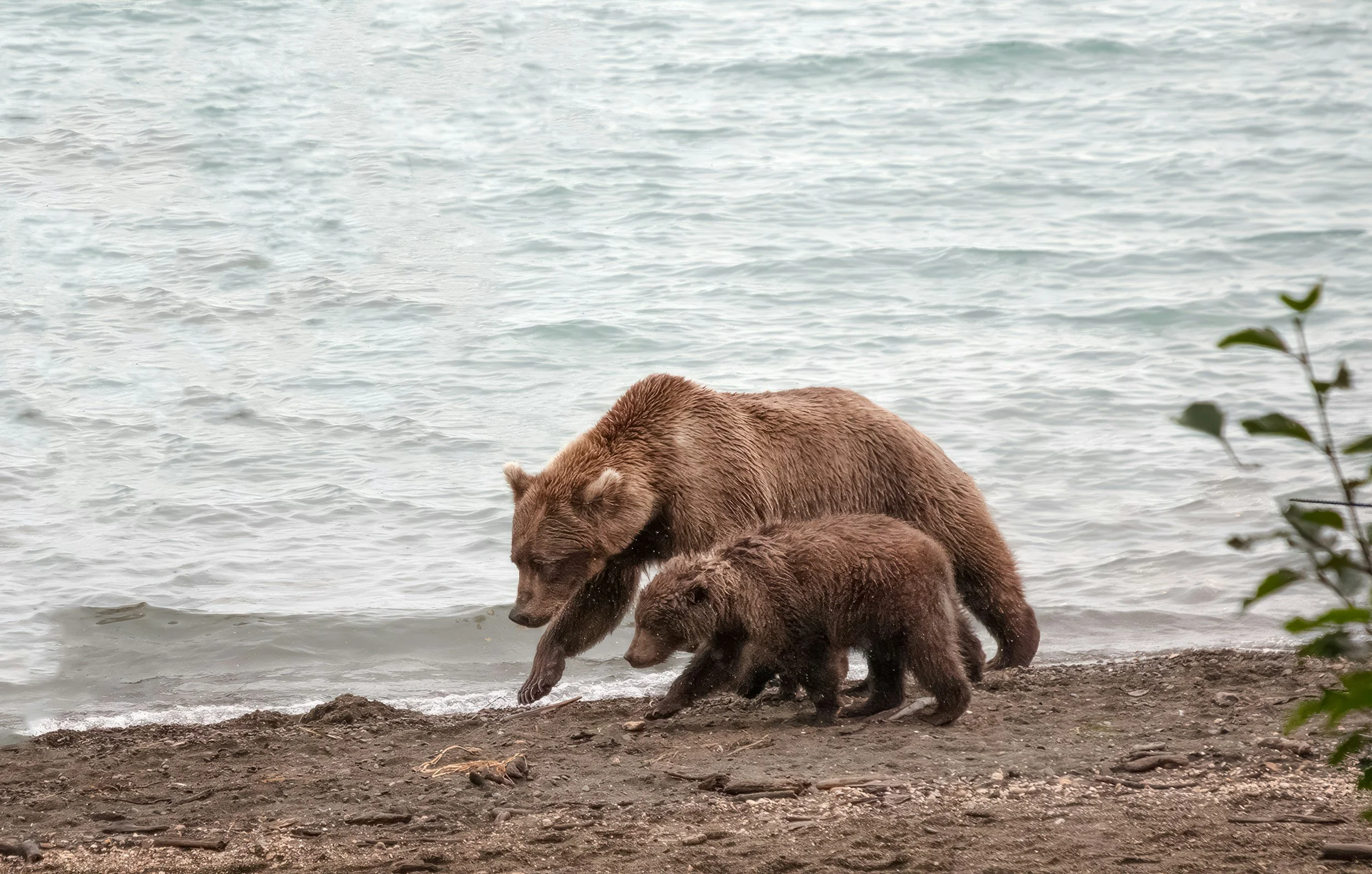Promoting Ethical Management Practices Based on Ecosystem Health
We advocate for wildlife management actions aimed at sustaining healthy, functioning ecosystems. Why? Functioning ecosystems are found to be more productive than non-functioning ecosystems, are more likely lead to harvestable surpluses of game species, and better allow for opportunities for various wildlife users (such as ethical hunting and wildlife viewing).
In the last several years, the State of Alaska, via the Board of Game, has allowed an increasing number of liberalized and unethical methods of hunting and trapping wildlife, and extended seasons to increase opportunities to harvest predator species. Management plans involving predator reduction efforts with the intent or potential to manipulate natural ecosystems or processes (including natural predator/prey dynamics, distributions, densities, age-class distributions, populations, genetics, or behavior of a species) for the purposes of increasing the numbers of harvested species are inconsistent with maintaining functional, healthy ecosystems.
To achieve our goals, we:
Work to propose an alternative to the Intensive Management Act of 1994.
Engage with the public and decision makers to maintain that predator control should be banned on federal lands.
Gather information on the cost of predator control for both humans and wildlife.
Learn more about our work on the ethical management practices
This morning at the Board of Game meeting, the ADFG requested an emergency regulation to reinstate Mulchatna bear control, which was recently found to violate due process and the sustained yield principle.
Today is a historic day for Alaska’s bears! Judge Guidi of the Superior Court of Alaska ruled in favor of the Alaska Wildlife Alliance, finding that the Mulchatna Bear Control program—in which the State has aerially gunned nearly 200 brown bears —was unlawfully adopted.
Between January 10 and 17, 2025, the Central and Southwest Board of Game Meeting will be held in Wasilla at the Best Western on Lake Lucille. While the main public comment period for proposals has already passed, there is a public comment period in the first few days of the meeting, where oral testimonies and written comments may be given.
The Board of Game Proposals for the Statewide Meeting have been released and AWA is carefully combing through them so that we can best represent the needs of Alaska’s wildlife at the Statewide BOG meeting in March. The public comment period is open until March 7, and we could use your voice to help safeguard Alaskan wildlife.
Alaska Wildlife Alliance attended the Central and Southwest Board of Game Meeting as a voice for Alaska’s wildlife, giving testimony, mobilizing public comment on proposals, and watching deliberations. Overall, AWA submitted comments on 37 proposals. The Board of Game voted with us on 22 of those proposals, for a 59% success rate, and voted against us on 15 proposals, for a 41% failure rate.
In a huge win for Alaska Wildlife Alliance, winter recreationists, and their dogs, a trapping setback proposal was passed for the Mat-Su at the most recent Board of Game (BOG) meeting.
Between January 10 and 17, 2025, the Central and Southwest Board of Game Meeting will be held in Wasilla at the Best Western on Lake Lucille. While the main public comment period for proposals has already passed, there is a public comment period in the first few days of the meeting, where oral testimonies and written comments may be given.
This January, the Alaska Board of Game (BOG) will deliberate on nearly 200 proposals impacting wildlife, including Proposal 75, which was submitted by the Alaska Department of Fish and Game (ADFG). ADFG has proposed sweeping aerial gunning on wolves and bears on the west side of Cook Inlet, between Denali National Park and Lake Clark National Park.
The Board of Game Proposals for the Central and Southwest Region have been released and AWA is carefully combing through them so that we can best represent the needs of Alaska’s wildlife at the Wasilla BOG meeting in January. The public comment period is open until December 27, and we could use your voice to help safeguard Alaskan wildlife.
Wolves can’t hold a pen, bears can’t submit an op-ed, and birds can’t publish books or essays. When Alaska’s wildlife need to share their stories, Bill Sherwonit is there.












